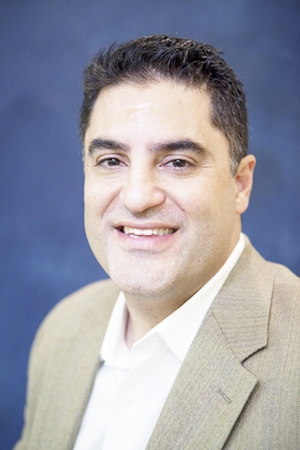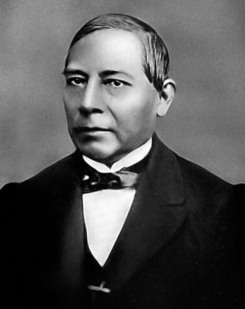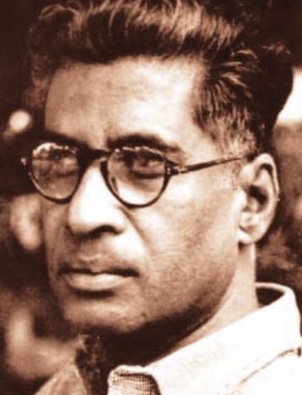March 21
Cenk Uygur

On this date in 1970, Cenk Kadir Uygur was born in Istanbul, Turkey. When he was 8, his family moved to New Jersey, where he graduated from high school. He majored in management at the Wharton School of Business, and later earned a J.D. from Columbia University. Uygur was raised as a “not-very-strict” Muslim but lost his faith after taking a college course about Islam and reading the Quran and the Bible.
He now describes himself as a secular humanist and an agnostic. He worked as an attorney, then became involved in local talk radio and television news production. In 2004 he created the online news talk show “The Young Turks.” In addition to internet video, the show was also broadcast on Sirius Satellite Radio until 2010.
Uygur has appeared on many television networks as a commentator, including MSNBC, Fox News and Al Jazeera. In 2010 he became a substitute host and paid contributor for MSNBC. In January 2011 he became the anchor of MSNBC Live, but left the network in June 2011 and started hosting “The Young Turks with Cenk Uygur” on Current TV, which went off the air in 2013.
In 2018 “The Young Turks” launched its own 24-hour channel on YouTube TV. In 2010 he accepted FFRF’s Emperor Has No Clothes Award. He received the American Humanist Association’s 2012 Humanist Media Award. Uygur and his wife Wendy Lang have a son, Prometheus Maximus, and a daughter, Joy.
Uygur apologized in 2017 for a series of blog posts from 1999 to the mid-2000s that were sexist toward girls and women, calling what he wrote “offensive, insensitive and ignorant.” He said he wrote the posts, deleted more than a decade earlier, while he was a conservative and before he underwent a political transformation into a liberal.
"I'm offended by [evangelical leaders'] actions, but I'm not offended by their opinion. They believe in a sky god who's going to suck them up into the sky with a vacuum cleaner. What's there to get offended by? That's funny! That's hilarious! Have at it, Hoss, I'd love to see it!"
— Uygur speech to FFRF's 2010 national convention
Benito Juárez

On this date in 1806, Benito Pablo Juárez García, who became the 26th president of Mexico, was born in the village of San Pablo Guelatao, Oaxaca. His parents, both indigenous Zapotec Indians, died of diabetes-related complications when he was 3, leaving Juárez to be raised by his uncle. At 12, he walked 40 miles to the city of Oaxaca to move in with his sister and begin his education.
Because of his obvious intelligence, he was given a place in the city’s seminary. He graduated in 1827 but decided to study law instead of joining the church. His political career began in 1831 when he became an official for the Oaxacan Town Council, representing the anti-establishment Liberal Party. In 1835, he was elected Liberal deputy to the federal legislature.
Juárez was elected governor of Oaxaca in 1846 and used his power to end corruption and invest in public goods, such as roads, new buildings, and new schools. After a few months in office in 1857 as Supreme Court president, he began his tenure as president of the nation on Jan. 15, 1858, serving until his death.
He is noted for his dedication to the causes of the poor, particularly the impoverished indigenous people, and for focusing on education and infrastructure rather than on the Mexican military. He is also celebrated for leading a successful resistance to European takeover. Also during his time as president, he worked as a secularist with the Liberal Party to dismantle the control the Catholic Church held over Mexico and the government.
During his time in office, the church, which was the largest landholder in Mexico, was stripped of much of its holdings and the Constitution of 1857 severed ties between church and state and guaranteed religious liberty for all citizens. Juárez was keenly aware of the injustices perpetrated by the church, particularly against indigenous people, who had been treated as heretics and killed if they refused to convert to Catholicism.
He famously said, “Among individuals, as among nations, respect for the rights of others is peace.” Juárez was married to Margarita Maza in 1843. They had 12 children. He died of a heart attack in 1872.
"Priests of any cult who, abusing their ministry, excite hate or disrespect for our laws, our government, or its rights, will be punished by three years' imprisonment or deportation."
— Juárez decree of Aug. 30, 1862
M.N. Roy

On this date (March 21), radical humanist and revolutionary Manabendra Nath Roy (né Narendra Nath Bhattacharya) was born in 1887 near Kolkata, India. The Bhattacharyas were Sakta Brahmins, a family of hereditary Hindu priests.
Roy majored in engineering and chemistry in college and became politically active due to the British partitioning of Bengal in 1905. A failed attempt during World War I to obtain German support for an Indian uprising against imperial rule made Roy a global wanderer, eventually landing him in Mexico via China, Korea, Japan and the U.S.
He became involved in the Mexican Revolution and became part of the international communist movement. Fleeing to the Soviet Union, he barely escaped Stalin’s wrath, only to have British authorities subject him to a harsh five years in prison on his return to India. During World War II, he urged full military support for Great Britain, thinking that the defeat of fascism was of higher priority than Indian independence.
In extensive writings that developed his philosophy of radical humanism, Roy tried to disassociate philosophy from religion and instead combine it with science. He helped create the International Humanist and Ethical Union (now Humanists International) and became one of its first vice presidents in absentia after the accident mentioned below prevented him from attending the inaugural convention in Amsterdam in 1952.
Roy established the Indian Renaissance Institute in the Himalayan foothill city of Dehradun, where the Radical Humanist, a journal he founded, is still published as of this writing in 2024. The movement has had a profound impact on secular thought in India and internationally.
Hermann Bondi, a stalwart of the British Humanist Association, cited Roy as an example of profound intellectual evolution. Acclaimed German-American psychoanalyst and philosopher Erich Fromm, a humanist himself, lauded Roy’s “Reason, Romanticism and Revolution” as a “thorough and brilliant analysis.”
He died of a heart attack at age 66 after undergoing two attacks of cerebral thrombosis sustained falling down a hill in 1952, causing partial paralysis. (D. 1954)
"The realization of the possibility of a secular rational morality opens up a new perspective before the modern world. … It must be realized that human existence is self-contained and self-sufficient; and that, therefore, man can find in himself the power to work out his destiny, to make a better world to live in."
— M.N. Roy, "Reason, Romanticism and Revolution" (1952)
